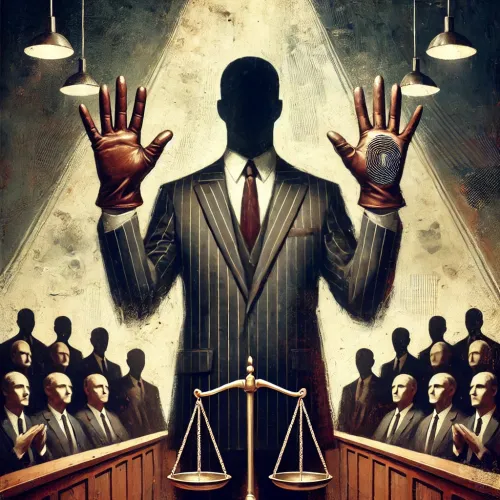The Prohibition era, ushered in by the ratification of the 18th Amendment in 1920 and enforced through the Volstead Act, aimed to prohibit the manufacture, sale, and distribution of alcoholic beverages in the United States. Prohibition was driven by a coalition of temperance advocates, religious groups, and progressive reformers who believed that banning alcohol would reduce crime, improve public health, and strengthen societal morality.
However, the laws faced significant resistance, particularly in urban areas and among immigrant communities, where drinking was culturally ingrained. Rather than eliminating alcohol consumption, Prohibition fueled the rise of illegal speakeasies, bootlegging operations, and organized crime. Amid this social and legal upheaval, jury nullification emerged as a powerful form of civil disobedience.
Jury Nullification in Action
Jurors during Prohibition frequently refused to convict individuals accused of violating alcohol laws, even when the evidence overwhelmingly pointed to guilt. This phenomenon was especially prevalent in cities like New York, Chicago, and Boston, where public sentiment was heavily opposed to Prohibition. Jurors empathized with defendants, often viewing the laws as intrusive, unenforceable, and disconnected from societal values.
One notable example involved the case of a bootlegger in New York City. Despite clear evidence presented by the prosecution, the jury acquitted the defendant, with jurors openly stating that they believed the law itself was unjust. Such acquittals became increasingly common, undermining the legitimacy and enforceability of Prohibition.
Mechanisms and Motivations
Several factors contributed to jury nullification during Prohibition:
- Moral Opposition: Many jurors believed that Prohibition laws criminalized behavior that was not inherently immoral or harmful, such as social drinking.
- Cultural Norms: In immigrant communities, alcohol consumption was deeply embedded in social and religious traditions, creating resistance to laws perceived as culturally insensitive.
- Selective Enforcement: Critics of Prohibition pointed to the discriminatory enforcement of alcohol laws, which often targeted working-class individuals and immigrant communities while sparing the wealthy and well-connected.
- Economic Impact: Prohibition adversely affected industries tied to alcohol production, such as brewing and distilling, leading to widespread job losses and economic hardship. Jurors who experienced these effects were less likely to convict.
Impact on Prohibition Enforcement
Jury nullification severely hampered the enforcement of Prohibition laws. Prosecutors struggled to secure convictions, even in cases involving clear violations. Acquittal rates in alcohol-related cases soared, particularly in areas where public opposition to Prohibition was strongest.
This trend eroded the credibility of Prohibition as a national policy. Law enforcement officials became demoralized, and public respect for the legal system diminished. Some legal scholars argue that the widespread practice of jury nullification during Prohibition played a crucial role in demonstrating the unworkability of the 18th Amendment and its enforcement framework.
Legal and Political Consequences
The failures of Prohibition enforcement, compounded by jury nullification, helped pave the way for the 21st Amendment, which repealed Prohibition in 1933. The public's resistance, expressed through both civil disobedience and jury nullification, highlighted the disconnect between national policy and societal norms.
Jury nullification during Prohibition also underscored the broader role of juries as a check on governmental power. By acquitting defendants despite evidence of guilt, juries acted as a democratic safeguard, ensuring that laws misaligned with public values were not enforced.
Critiques and Controversies
While jury nullification during Prohibition is often viewed as a legitimate form of resistance to unjust laws, it was not without controversy:
- Inconsistency: Nullification led to uneven application of the law, with outcomes varying widely based on local attitudes and jury composition.
- Undermining Rule of Law: Critics argue that nullification weakens the rule of law by allowing jurors to substitute personal beliefs for legal standards.
- Potential for Bias: Some nullification decisions may have been influenced by prejudice, such as favoritism toward wealthier defendants or bias against law enforcement.
Despite these challenges, proponents of nullification argue that its use during Prohibition demonstrated the jury’s essential role in upholding justice and reflecting community values.
Legacy
Jury nullification during Prohibition remains a defining example of the jury’s power to resist laws that lack public support. It highlights the dynamic relationship between law and society, illustrating how juries can serve as a barometer of social consensus.
The lessons of Prohibition continue to inform contemporary debates about jury nullification, particularly in cases involving controversial laws, such as drug offenses and immigration regulations. Advocates of nullification cite the Prohibition era as evidence that juries can play a constructive role in challenging policies that fail to align with societal values or ethical principles.
The widespread practice of jury nullification during Prohibition underscores the jury’s function as a democratic institution capable of shaping the enforcement of laws. By refusing to convict individuals under laws they deemed unjust or unenforceable, jurors during Prohibition highlighted the limitations of legal authority when disconnected from public sentiment. This resistance not only contributed to the eventual repeal of Prohibition but also reaffirmed the importance of jury independence in safeguarding justice and reflecting community values within the legal system.



